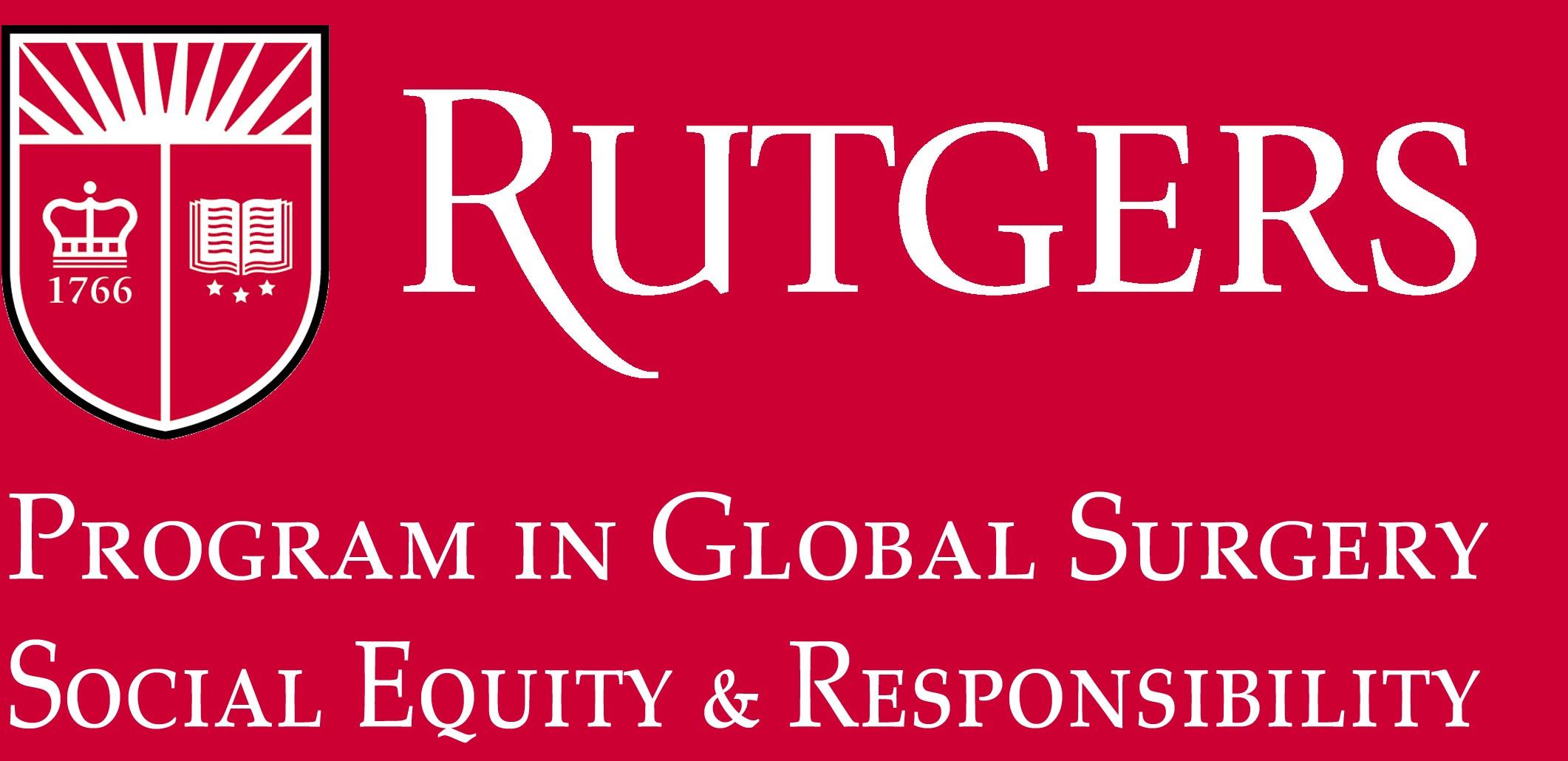Rutgers Global Surgery Fellowship In Social Equity and Responsibility
Our mission is to educate and train academic leaders in global surgery in a systems-aware approach that reduces the disparities in the treatment of surgical disease locally and globally.
Program Description
The Rutgers Global Surgery Fellowship (RGSF) was conceived of and developed within the Division of Acute Care Surgery and the Department of Surgery at Rutgers Robert Wood Johnson Medical School. The program is the product of collaboration between the Rutgers School of Public Health and Rutgers Global Surgery within Rutgers Biomedical Health Sciences. The RGSF’s main purpose is to train and cultivate leaders in academic global surgery.
Historically, provision of surgical care by high-income countries abroad has consisted of organizing medical mission trips in a vertical style of health care delivery. While this approach has been indispensable to temporarily augment workforce needs to treat vulnerable populations, the need for a more systematic and sustainable approach has recently been recognized. Under the auspices of the Lancet Commission on Global Surgery, the World Health Organization (WHO), and the World Bank, a new context for surgical systems analysis and strengthening has in part been brought about by the landmark publication Global Surgery 2030 with the concomitant prioritization of surgery, obstetrics, and anesthesia care systems, advocacy and policy by the WHO. This innovation has redefined and expanded the role of the academic global surgeon as a change agent in global public health to achieve social equity and responsibility through achievement of Universal Health Care (UHC). Ratification of the World Health Assembly Resolution 68.15 (WHA 68.15), which called for the provision of emergency and essential surgical care (including obstetrics) and anesthesia as integral components of UHC has further strengthened this movement.
Rutgers Global Surgery defines global surgery as a science that embraces a multisectoral interprofessional systems-based approach by surgeons and health systems research groups in policy, public health, health services, economics, and population health to improve timely, quality, affordable access to surgical care. Fellows will learn about the surgical burden of disease locally and globally, acquire research tools and methods to investigate and reduce disparities in vulnerable populations, and promote interest in global surgical care by fostering collaboration via team science among surgical residents, research fellows, medical students, master’s students, undergraduates, nurses, and all others interested as active participants in this movement.
The mission of the Fellowship is to investigate and promote all aspects of achieving Universal Health Care with simultaneous provision of emergency and essential surgical care in all regions of the world. Fellows are expected to participate and develop research projects through international collaboration in surgical system science, situation analysis, gap-analysis, and gap closure as it pertains to the WHO health system building blocks (informed by system based indicators, and National Surgical, Obstetric, and Anesthesia Plan (NSOAP) development, implementation, and evaluation science).
